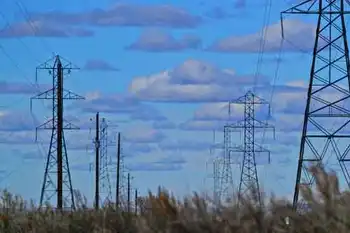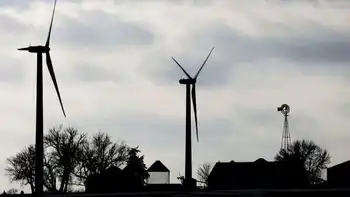Fall River Restaurant lauded for efficiency
MABERLY, ONTARIO - Lauded as Canada's Green Restaurant, the Fall River Restaurant in Maberly, Ontario has been recognized for its commitment to energy conservation and environmentally responsible operations by Ontario's Chief Energy Conservation Officer.
Peter Love, Ontario's Chief Energy Conservation Officer, visited the restaurant and presented a Certificate of Recognition for Energy Conservation to owners Paul and Michele Zammit. The certificate is for: "Â…serving up a delicious platter of energy efficiency, combined with renewable construction materials and reduced greenhouse gas emissions, served with locally-grown organic food, proving that a culture of conservation can dress up your table and increase your profitsÂ….
"It's always exciting to see such commitment and initiative from entrepreneurs like Paul and Michele," said Mr. Love. "Green business is the future, economically, socially and environmentally and the owners of Fall River are to be congratulated for their efforts and for demonstrating what can be accomplished."
People are paying attention to the Fall River Restaurant. For the last four years, it has been listed in Where to Eat in Canada, and last June the Ottawa Citizen named it the "Greenest Restaurant in Canada".
The Zammits have made extensive improvements aimed at reducing their business' carbon footprint. These included: capturing kitchen heat to pre-heat hot water, burning used vegetable oil for space heating, insulating with straw bales and installing LED lights where possible. The single largest difference, according to the Zammits, is attributable to updating their fridge and freezer compressors to maximize energy efficiency.
"It's great to have our efforts, and the work of our trades people, recognized," said Paul Zammit. "We hope that other businesses see us as proof that environmentally sustainable practices are also economically sustainable."
The Zammits are planning to install even more eco-friendly innovations in the future. An old fashioned ice-house, which could cut the restaurant's $2,000 electricity bill by a third, is in the works. Solar panels, for water and space heating, will be installed by the end of this year and make use of an existing cistern. The Zammits are also assessing the feasibility of a renewable energy system installation, which could result in excess power being sent back onto the electricity grid.
Related News

Ontario introduces new 'ultra-low' overnight hydro pricing
TORONTO - The Ontario government is introducing a new “ultra-low overnight” electricity plan that can benefit shift workers and individuals who charge electric vehicles while they sleep.
Speaking at a news conference on Tuesday, Energy Minister Todd Smith said the new plan could save customers up to $90 a year.
“Consumer preferences are still changing and our government realized there was more we could do, especially as the province continues to have an excess supply of clean electricity at night when province-wide electricity demand is lower,” Smith said.
The new rate, which will be available as an opt-in option as of May 1,…




